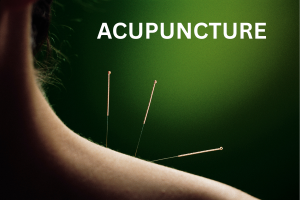
🔹 How Acupuncture Works
Traditional Chinese Medicine (TCM) Explanation:
- The body has a life force called Qi (pronounced “chee”).
- Qi flows through pathways in the body called meridians.
- Illness or pain occurs when the flow of Qi is blocked or unbalanced.
- Acupuncture stimulates specific acupoints to restore the proper flow of Qi.
Modern Scientific Perspective:
While Qi and meridians can’t be measured by modern instruments, studies suggest acupuncture may:
- Stimulate nerves, muscles, and connective tissue.
- Trigger the release of endorphins, the body’s natural painkillers.
- Improve blood circulation and reduce inflammation.
- Influence the central nervous system and immune response.
🔹 What Acupuncture Does
- Modulates pain by releasing neurotransmitters.
- Relaxes muscles and reduces tension.
- Enhances mood by stimulating serotonin and dopamine.
- Regulates body systems, such as digestion or hormones.
🔹 What Acupuncture Helps With
Scientific evidence supports acupuncture for a range of conditions, including:
✅ Pain-related Conditions:
- Pain management
- Chronic back, neck, and shoulder pain
- Osteoarthritis (especially knee pain)
- Headaches and migraines
- Sciatica
- Fibromyalgia
- Dental pain
✅ Mental Health & Neurological:
- Anxiety and depression (as an adjunct treatment)
- Insomnia
- Stress
- Post-stroke rehabilitation
✅ Women’s Health:
- Menstrual health/regulation
- PCOS
- Menopause symptoms (like hot flashes)
- Fertility support (often used alongside IVF)
- Postpartum health
✅ Digestive and Other Conditions:
- Digestion issues
- Nausea and vomiting (especially from chemotherapy or pregnancy)
- Irritable bowel syndrome (IBS)
- Allergies and sinusitis
***** IN NETWORK insurance plans ****
Our office is IN NETWORK for Acupuncture with Aetna, Aetna Medicare and BC/BS.
(Benefits are based on your individual policy with the above insurance plans.)
